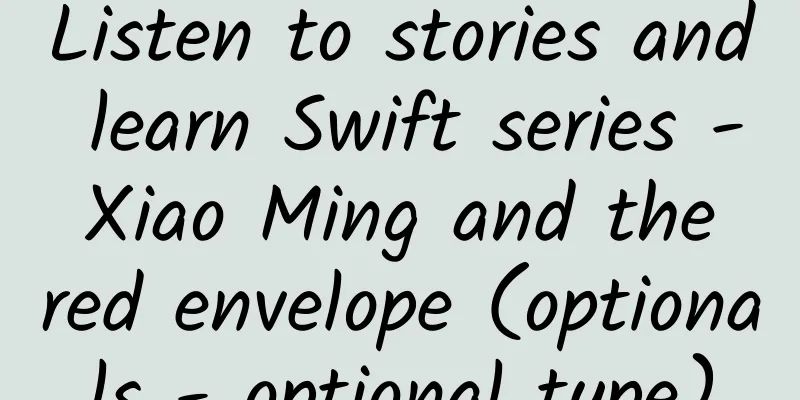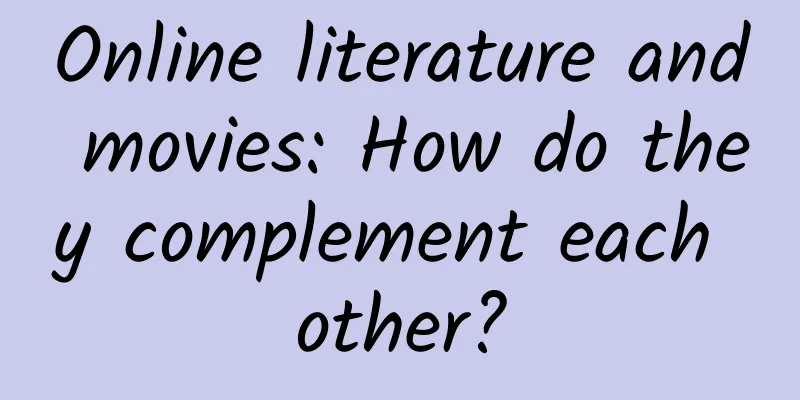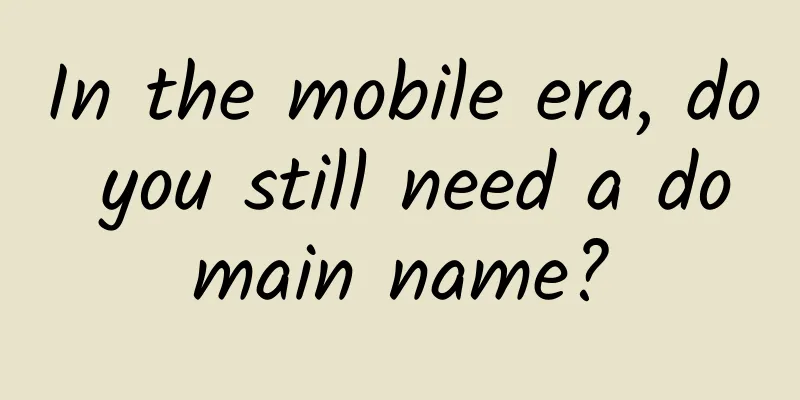Listen to stories and learn Swift series - Xiao Ming and the red envelope (optionals - optional type)

|
The naughty child Xiao Ming and his moonlighting aunt one story The naughty kid Xiao Ming is going to have his 7th birthday. He blocked the door of his house early in the morning and asked for red envelopes from relatives who came to celebrate his birthday. He also said that he would make trouble if they didn't give him red envelopes. Knowledge Points
two story After eating the cake and seeing everyone off, Xiao Ming happily opened the red envelope. Wow! There are so many Mao Zedongs in this red envelope! Wow! There are actually US dollars in this red envelope! Wow! This red envelope is actually empty!!! Xiao Ming cried, cried so sadly, and the whole person collapsed. Knowledge Points
three story In the blink of an eye, Xiao Ming is about to celebrate his 8th birthday. Recalling the empty red envelopes he received when he was 7 years old, Xiao Ming prepared a transparent plastic bag early. When receiving red envelopes, he asked everyone to put the contents of the red envelopes into the plastic bag in front of him before he could go into the house to eat. If nothing fits into the plastic bag, Xiao Ming will throw a tantrum and spit (what a naughty child-_-|||) Knowledge Points This story is about optional binding of Optional type data.
Four story Xiao Ming has grown up and knows that it is not good to ask relatives to open the red envelopes in front of him. He doesn't care about some unscrupulous relatives giving empty red envelopes. He has learned to play dumb (how did he suddenly change so much-_-|||). Although he still gets upset when he opens an empty red envelope. Knowledge Points Implicitly unwrapped optional types Sometimes in the program architecture, after the first assignment, it can be determined that an optional type will always have a value. In this case, it is very inefficient to check and parse the optional value every time, because it is certain that it will always have a value. end Well, Xiao Ming's story is over! Don't give your juniors empty red envelopes in the future! Otherwise, when he grows up, he won't be able to implicitly interpret you! Haha |
<<: 25 great tips for intermediate Git users
>>: Don’t use subclasses! Swift is protocol-oriented at its core
Recommend
Do you gain 3 pounds every holiday? Refuse to carry the "weight" this winter vacation!
Source: Ni Xiaojiang, Jing'an Centers for Dis...
Using mosquitoes to fight mosquitoes, Brazil will build the world's largest mosquito factory, with an annual output of 5 billion mosquitoes
Summer is almost here, and along with sunshine, b...
Three suspensions of production led to Xinfei Electric's defection: foreign investment led to the entry of wolves
On the penultimate day of October, a board meetin...
Why is this photo worth 10 billion?
On July 11, 2022, the first color picture of the ...
[Moving bricks for profit] Mengtu earns 100,000 yuan a year in the first phase of the basic course + advanced course of the brick-moving team
[Moving bricks for profit] Mengtu earns 100,000 y...
How powerful is the "Magic Pen Ma Liang" in the criminal investigation world?
This issue is planned by: rain This issue's c...
Practical traffic diversion: How to build a traffic diversion and promotion system?
A word of advice: I would like to build an ecolog...
How to A/B test your app icon
[[145648]] In addition to the app name and previe...
How long is left in the life cycle of a mobile phone?
We always have two perspectives to look at a prod...
What did the bigwigs in the technology circle say at the two sessions?
[[128838]] Ten years ago, these Internet entrepre...
As long as the information flow optimizer does this step well, he can easily improve the conversion rate!
Many friends asked: I have been working as an opt...
Safety secrets on the return journey during the Spring Festival travel rush: Why don’t high-speed trains require seat belts?
There are seat belts on airplanes and cars, but w...
Xiaohongshu competitive product analysis report!
Today, when e-commerce has penetrated into our li...
E-commerce operations: How to use coupons?
When it comes to e-commerce platforms, everyone k...
Operational Leap: How to make a three-stage rocket land on a point, line, surface and solid?
When planning a strategy for a product, we cannot...









